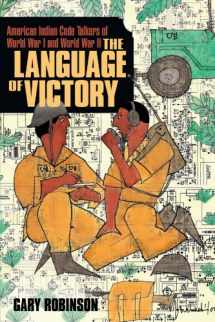
The Language of Victory: American Indian Code Talkers of World War I and World War II
Book details
Summary
Description
Thanks to the 2002 Hollywood film Windtalkers, the Navajo code talkers of World War II emerged from the annals of history to become world famous. But few people know that at least twenty other American Indian languages were used to send coded military messages during World War I and II-messages that were never decoded by America's enemies. Relying on US Department of Defense documents, never-before-seen or heard interviews with Choctaw, Comanche, and Navajo code talkers, and other primary sources, filmmaker and American Indian historian Gary Robinson delivers a meticulously researched account of this little-known part of US history. In this multifaceted story, Robinson discusses the evolution of military communications and delves into the historical, cultural, and linguistic developments of the American Indians prior to World War I that led to their significant contribution during both world wars. Robinson digs deeper than the historical record. With skillful precision, he contrasts the changing federal government policies that transformed Native American languages from cultural relics worthy only of the trash bin to valued gems demanding preservation. He also questions how America's history might have been altered if missionaries and government agencies had successfully eliminated America's indigenous languages. Engaging and brilliantly constructed, The Language of Victory presents a compelling contribution to the historiography of World War II and the American Indian.


We would LOVE it if you could help us and other readers by reviewing the book
Book review



